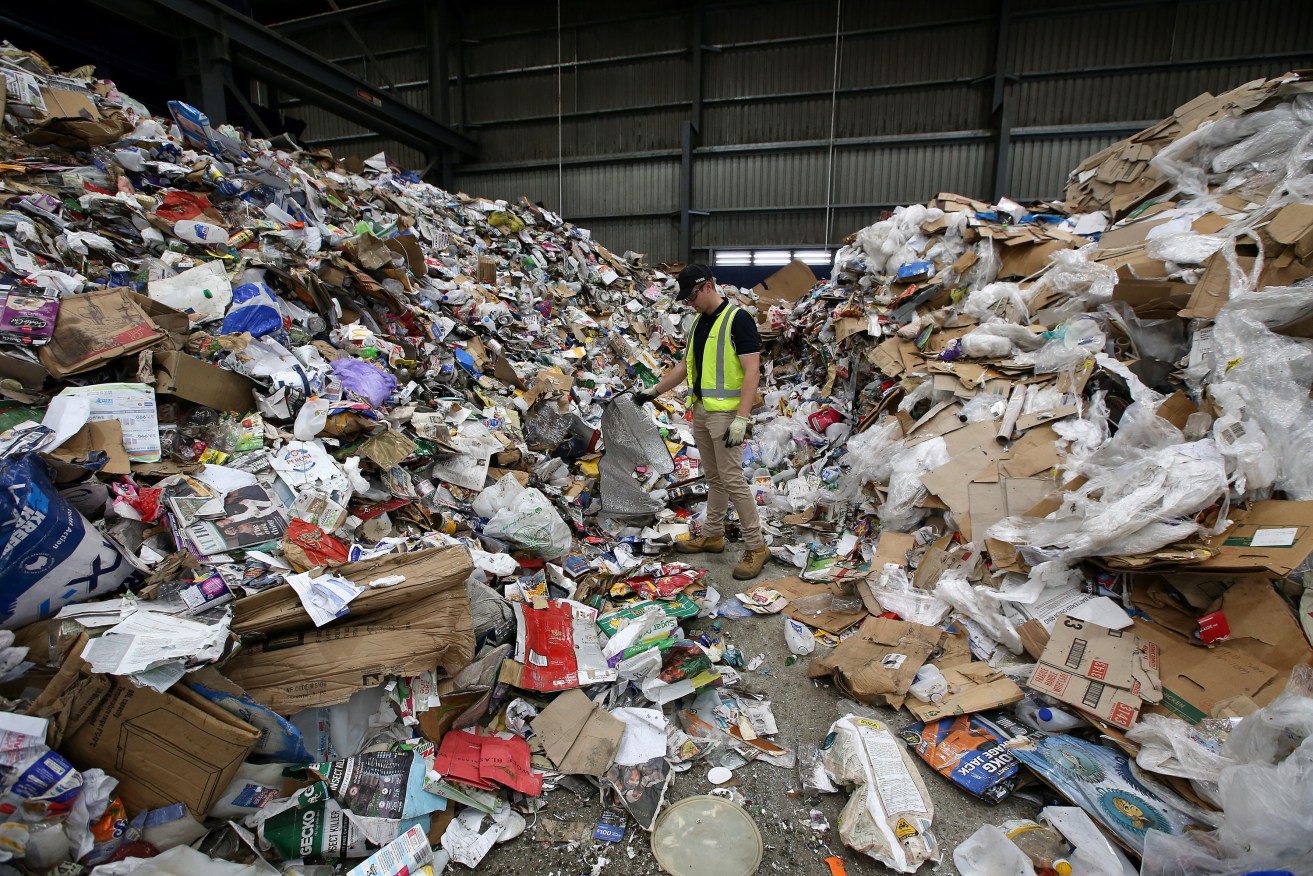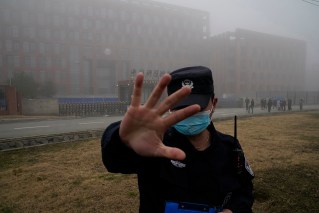More plastic waste than ever before adds to climate woes


Despite growing awareness about climate impacts, single-use plastic production is set to outstrip demand. Photo: AAP
There is more single-use plastic waste than ever before – with single-use plastic production set to outstrip demand.
The latest Plastic Waste Makers Index, released by the Minderoo Foundation, shows an additional six million metric tonnes of single-use plastic waste was generated in 2021, compared to 2019.
This was almost entirely made from fossil fuel-based raw materials, rather than recycled plastic.
Although recycling plastics reduces ‘cradle-to-grave’ greenhouse gas emissions by up to 40 per cent compared to producing plastic polymers from fossil fuels, producers have yet to embrace the circular plastics economy.
This means the greenhouse gas emissions from single-use plastics in 2021 were equivalent to about 450 million metric tonnes of carbon dioxide – more than the UK’s total greenhouse gas emissions.
The findings were “shocking”, Minderoo Foundation chairman Andrew Forrest said.
The idea that the industry will transform without being pushed to do so should be abandoned, Mr Forrest said.
“We need a fundamentally different approach that turns the tap off on new plastic production,” he said.
“We need a ‘polymer premium’ on every kilogram of plastic polymer made from fossil fuel. We need financial incentives that encourage reuse and recycling and the build of new, critical infrastructure.
“Better waste management is part of the solution – it is paramount that we halt the increase in pollution and the threat to our health from micro-plastics. But that effort must be combined with reducing the production of new plastics from fossil fuels.”
Sarah Bekessy, professor of sustainability and urban planning at RMIT University, said the report’s findings are disappointing given how hard the average person feels like they have been trying to do better by the environment.
“We’re aware of this issue a lot more than we were in the past,” Professor Bekessy said.
“What [the findings point] to is just how pervasive single-use plastic is in our society.
“It’s going to take some pretty major structural changes to the way that we do things to truly minimise the usage.”
Government action needed
The companies making the most ambitious commitments to a circular plastics economy are active in markets where there are more progressive regulations supporting the economics of recycling, albeit to different degrees – specifically, in Europe, the US, and parts of Asia, the report found.
Australia tends to leave plastic policy up to individual states, and appears to have no large-scale regulations or incentives to prompt plastic producers to do better.
States are phasing out certain single-use plastic items such as straws and cutlery, with Victoria the latest to do so.
But single-use plastic remains rife, particularly in supermarkets which have been criticised for over-packaging products like fresh produce.

Tonnes of plastic waste was stockpiled instead of recycled by REDcycle. Photo: TND
The sector seemed to be moving in the right direction with the REDcycle return-to-store soft plastics recovery program, but its resounding failure was “depressing” and highlights Australians are willing to put some work into plastic recycling, Dr Bekessy said.
“You’d see grandmothers riding their bicycles with bags of soft plastic to take them to the supermarket, and now we all know that they then have been put into the rubbish bin,” she said.
“So that kind of stuff is demoralising, but it also points to the goodwill of the Australian public to do the right thing, if given half the chance.”
Dr Bekessy said plastic producers can’t be trusted to self-regulate, and more government intervention is needed.
“If you buy a washing machine [in Germany], for example … that washing machine has to be taken back by the company that produced it and actually recycled or reused,” she said.
“We could have that in Australia, then you’d instantly remove a whole huge area of waste, and the same thing could be happening in many other domains.
“It’s just a matter of starting at least with strong regulation [in Australia], and then eventually, it’ll just become such mainstream practice that we don’t need to have such strong kind of regulators.”
Ways to use less plastic
The report found planned increases in production capacity for polymers bound for single-use plastics is expected to outpace demand.
Dr Bekessy said one of the best ways to slow down plastic production is by people using even less plastic.
She said taking part in challenges such as Plastic Free July is a good step towards figuring out how to use less plastic in your everyday life.
Using reusable bags for grocery shopping, and bringing glass containers to your butcher or supermarket deli are also basic things you can do to avoid single-use plastics.
“It definitely challenges institutions like Coles and Woolworths to have a think about what the alternatives [are] for them to be providing single-use plastic in those instances,” Dr Bekessy said.
“It’s providing demand to industry by being vocal about what it is that you want and you’re demanding.”
What you put in your shopping trolley can also make a big difference; keep an eye out for items like corn starch alternatives to plastic bin bags, and compostable alternatives to plastic plates and cutlery if they’re not yet banned in your state.








